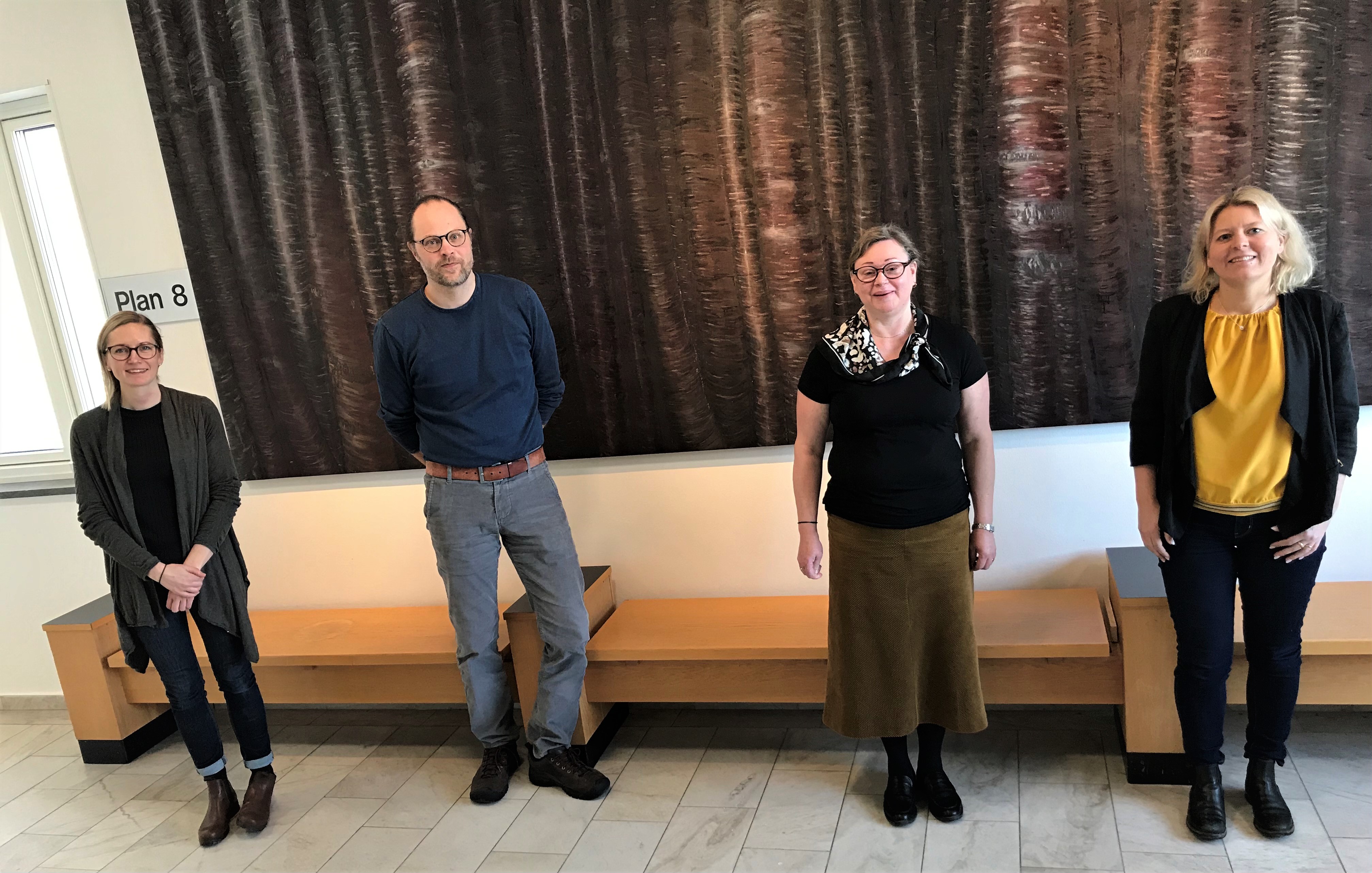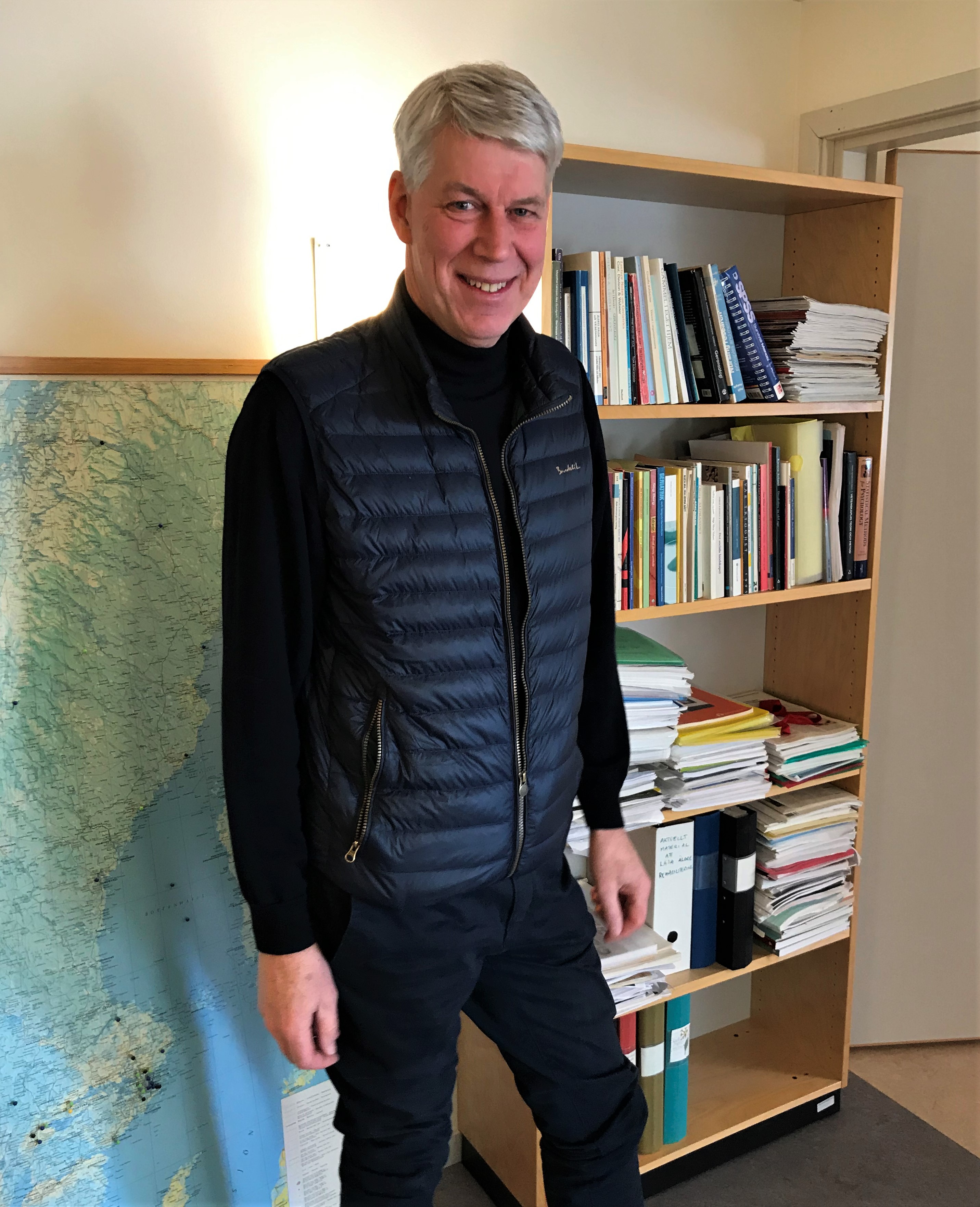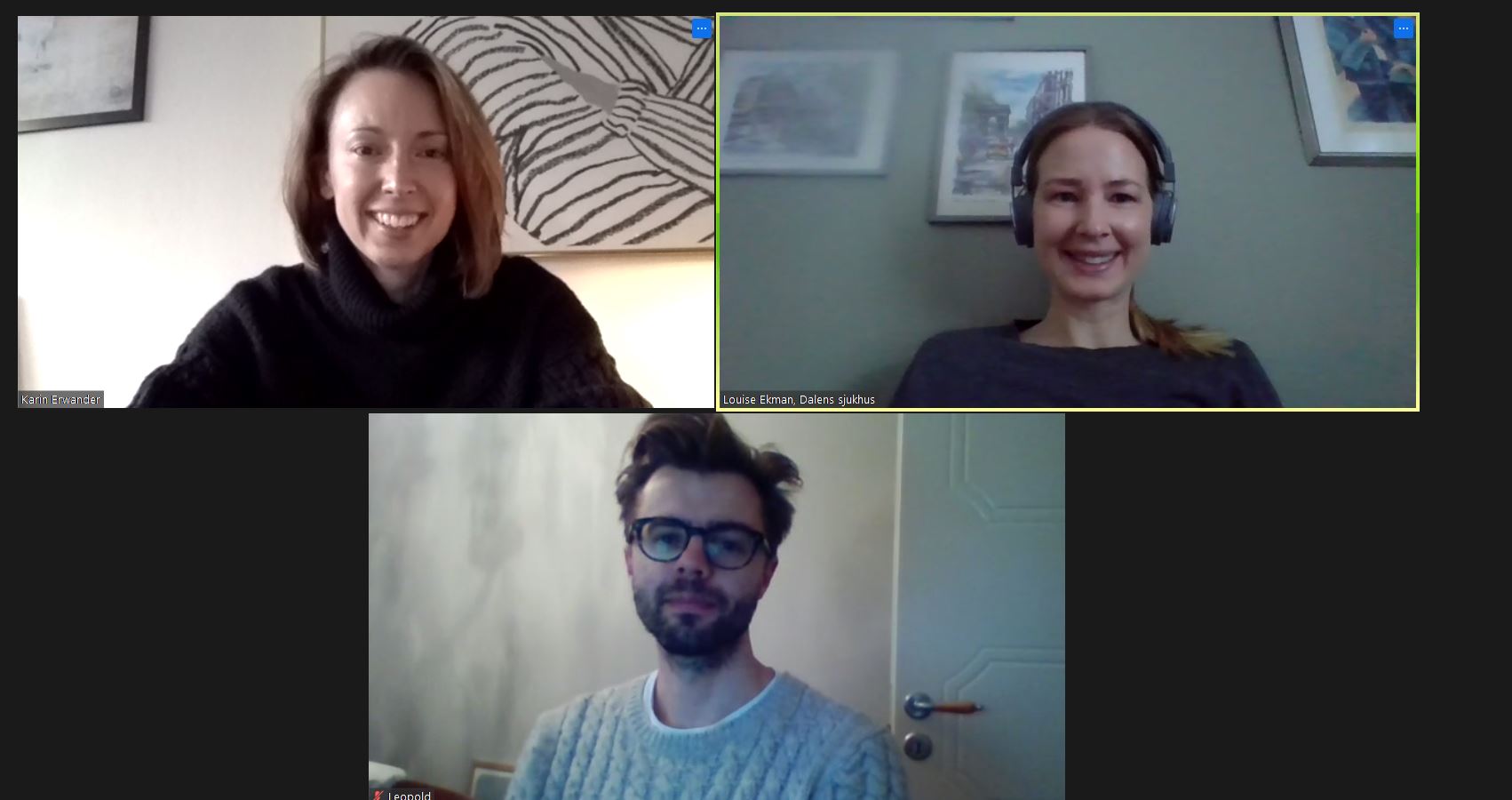Specialist doctors are trained in issues related to fragile elderly and death
Future specialist doctors from all over Sweden have participated in the highly topical course "Home care and care for the frail elderly", which has taken place over four days and been co-arranged by the School of Health and Welfare at Jönköping University and Region Jönköping County.
Each day of the course focused on a specific area of home healthcare and care for frail elderly people. The future specialist doctors have met with both local and national experts in their respective fields and the professions of the lecturers ranged from nurses and doctors to funeral contractors and researchers. Due to the pandemic, the course was held digitally this year.

From left: Emelie Lind, Daniel Gustafsson, Rosita Nyman and Linda Johansson which have all been involved in the course coordination.
"High number of applicants and high evaluation ratings"
Daniel Gustafsson, chief physician at the Region Jönköping County, was director of the course and thinks that the participants were very engaged and will take away knowledge in several different areas. In addition to clinical conditions that affect the elderly, nutrition, and collaboration between the regions and municipalities, the focus was on so-called breakpoint dialogue (conversations that are held when all curative treatment ends and care is transferred to palliative care).
“Good palliative care contains a lot of information, teamwork, participation for the patient and relatives and competence in symptom relief. The doctor has an important role to contribute with leadership and communication, not just the medical part,” says Daniel Gustafsson.
The course is a so-called specialist competence course which was introduced by the National Board of Health and Welfare and which, after a procurement decision, was held at the School of Health and Welfare in collaboration with Region Jönköping County.

Lasse Larsmark, one of the highly appreciated lecturers during the course.
“The number of applicants has increased steadily since 2017 and the course receives very high marks in evaluation. The good word seems to have spread in the country, which has probably also contributed to us having more applicants”, says Daniel Gustafsson.
Lasse Larsmark works as a hospital chaplain and lectures during the course on how to deal with fear and grief related to death. During his lecture, he tries to get the participants to think from a psychological and existential perspective in addition to a purely medical one.
“I want the doctors to ask themselves the question - who do I have in front of me, what support do they need? Some patients may do well when they can talk to their relatives, others may feel very lonely and some may, even though they have relatives, have a very hard time talking about their illness. That is why it is important to be sensitive to each person's situation,” says Lasse Larsmark.
"You can never get too much information about breakpoint dialogue"
Leopold Baars works as an ST doctor in general medicine in Grums, Värmland and was one of the course participants. He appreciates the course and thinks that it could be included in the education for doctors specialising in general medicine.
“This has been a very good course for me, part of my job means that I work with rounds in elderly care homes with about 40 patients where we care for the oldest and most fragile individuals. This knowledge is very important, and has especially been brought to attention now during the pandemic. The course has been rewarding, partly because we received concrete tips, partly because we got to hear how other colleagues in the country are working,” he says.
Another of the course participants, Louise Ekman, ST doctor in geriatrics at Dalens Hospital in southern Stockholm, agrees.
“The course has been very rewarding for me as a future geriatrician. I have encountered some parts in previous courses, for example the part about breakpoint dialogue, but I think you can never get too much information about it,” she says.
Karin Erwander, who works as an ST doctor in emergency medicine at Östra Sjukhuset in Gothenburg, thinks that the course has worked well in the digital format.
“I can imagine that the discussions would have been deeper and more numerous if we could have met in person, but I still think that it has worked well in the digital format and I am very happy that it was not cancelled, as many other courses have been,” she says.

Three of the participants, first row Karin Ewermark and Louise Ekman, second row Leopold Baars.
